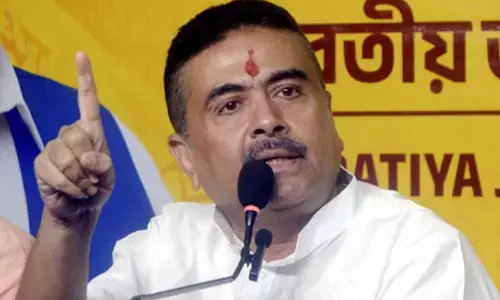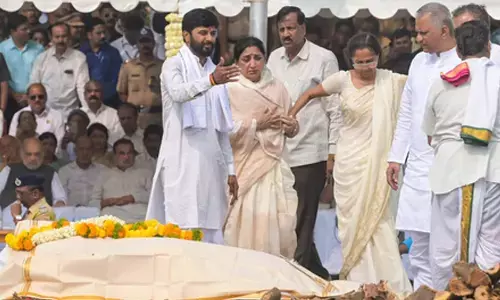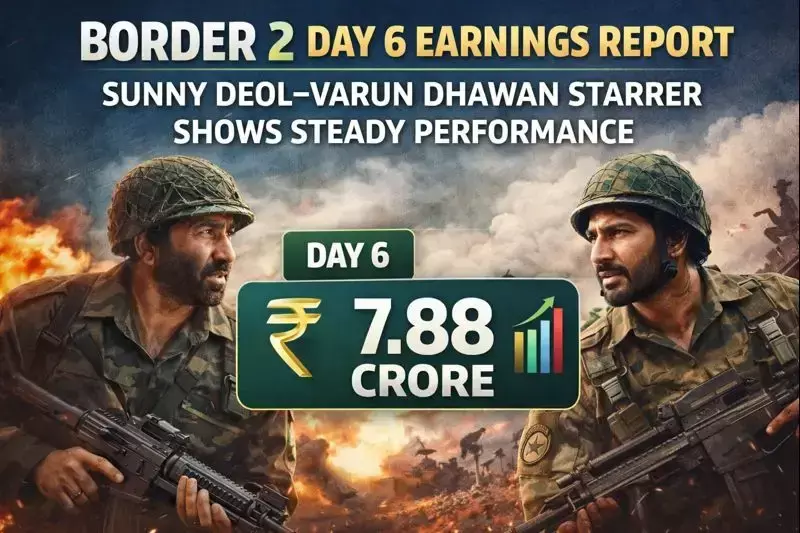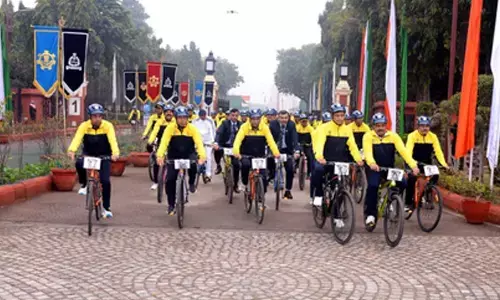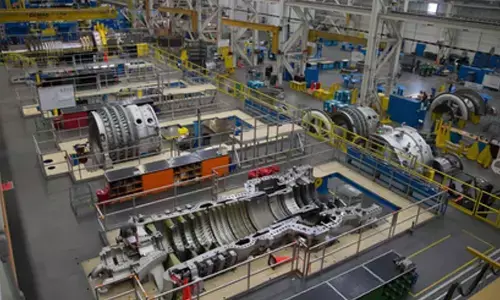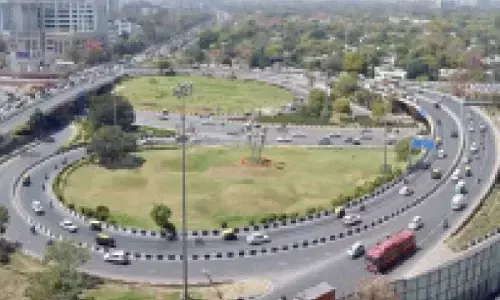Election is fight of rich

Election is fight of rich, It is an open secret that the money influences the polls. To quote the Supreme Court from its judgment in Common Cause vs.
It is an open secret that the money influences the polls. To quote the Supreme Court from its judgment in Common Cause vs. Union of India in 1996:“The political parties in their quest for power spend more than one thousand crore of rupees on the general election (parliament alone), yet nobody accounts for the bulk of money so spent and there is no accountability anywhere. In a democracy where the rule of law prevails this type of naked display of black money, by violating the mandatory provisions of law, cannot be permitted.”
One MP candidate spent more than hundred crore rupees to win while in another constituency somebody lost after spending fifty crore. If the haves fight with have-nots, we can say haves had their seats because they spent huge money. How to read the result of an election when more than one spent multiple crores of rupees and one of them won. Money alone cannot win the polls but not having it certainly prevents him from entering legislature.
During the poll days scores of currency notes were caught by the police from moving vehicles. During 2014 polls, public sector buses were used to carry bag loads of notes. A wife of a cabinet minister was found with currency bags. As media does not follow up these stories, people have no chance to know where the money ultimately reached. It is unofficially stated that most of the money is safely returned to the ‘owners’. Catching of money by police absolutely no threat as it has no consequences at all. The political parties have corrupted the corrupt machinery further and used police/official structure to distribute money to voters at a price of two to five per cent of money distributed by them. There is no body to control the flow of money and prevent its influence. Election Commission has no time during elections and no power and interest after results declared.Every candidate, won or lost, would fudge expenditure figures and fears none for that.
Association for Democratic Reforms (ADR)’s analysis of the Lok Sabha 2009 election expenditure statements found gross discrepancies between the lump-sum amounts declared by parties and by their MPs. While 81 Congress MPs in their individual expenditure statements said they had received no lump-sum amount from their party, the party’s expenditure statement said that a total of Rs 8.09 crore was provided to them. Similarly, BJP stated in its expenditure statement that it did not provide any of its MPs a lump-sum amount of money, but 27 of its MPs claimed they had received a total of Rs 2.75 crore from the party. There is no law which necessitates donations to the parties only through formal bank transfers using cheque, demand draft, real time gross settlement (RTGS), etc. While analysing the donations details above Rs 20,000 it is observed that there are huge donations made in cash. It obviously follows that tracking these cash donations becomes difficult.
None takes pains to monitor expenditure and prepare proper complaint with basis or proofs which can prove the corrupt practice of bribing the voters.
The impact of this practice is far reaching. Only very rich could contest polls which means have-not is eliminated. Then the elected will start earning more than what he spent, which means bribery of MP is guaranteed. An MP will certainly make enough money to contest again. A minister or CM has to amass more to help his party to win a state. Corruption is institutionalised after initiated at the stage of pre-election campaign itself. Who will regulate this aspect? How do they amass? Allocation of 2G spectrum and coal mines are small examples. If some actively collect, one or two will facilitate through silence.
A case was registered under Sections 420, 120 B and 13 (1)(c)(d) of the Prevention of Corruption Act, against Petroleum minister in UPA II Government, RIL chairman, former minister of UPA I Govt and former Director General of Hydrocarbons relating to pricing of natural gas from Krishna Godavari Basin. It was alleged that UPA II favoured RIL with huge financial benefit, in return to funding elections.Whether the government and RIL had colluded to double the gas prices to $8 per million British thermal unit (mBtu)?Gurudas Dasgupta and Prashanth Bhushan filed these cases. In his capacity as the Delhi Chief Minister, Arvind Kejriwal alleged that the policy makers colluded to inflate the prices of gas produced from KGD6 block. Reliance was being allowed to windfall gains and that the cost of production was less than USD 1 per barrel. Toxics Watch Alliance (TWA) has copies of the correspondence E A S Sarma had with the UPA Prime Minister in this regard. Notably, the Chief Minister of Andhra Pradesh had also written to Government of India questioning the original price fixation methodology.
Unless provisions of Companies Act, 2013 that provide for corporate funding to political parties is removed such quid pro quo will never be stopped.The legal provision for corporate funding for political parties was introduced in 2002-03 by amending Companies Act, 1956 and other related laws wherein they could donate up to 5% of their annual profit to political parties. As a consequence there has been a tax waiver of Rs 30 lakh crore by UPA Government during its regime.
Some of these actions could be in disregard of the directions of the Constitution in Art.60, 53(1) and especially Art.39 (b) and might lead to charge of non-compoundable offences punishable under the IPC. The Contesting Election on Government Expenses Bill, 2012 was introduced by BJP MP Prabhat Jha. Corporate funding, limitless expenditure, exemption to political parties from income tax, indirect funding of political parties by state, criminalisation of politics, absence of inner democracy will lead to convert democracy into corporate ruled slavery and common man will be left at the mercy of Commercial czars.
Who decide the ministers?
Corporate lobbyist Niira Radia’s controversial tapes revealed that the corporate and industrial lobbying have decided the portfolios in UPA II government. As per Constitutional norms it is prerogative of PM. Recent exposure of Markandey Katju revealed that a coalition partner could threaten pull out from UPA if corrupt judge was not confirmed. The same political party was behind telecom scams and deciding who Telecom minister to be. Whether a company decides who should hold Petroleum portfolio and some other decide who the Telecom minister would be? Gurudas Dasgupta anlaysed and said RIL selected all Petroleum Ministers of India except Jaipal and Manisankar Iyer. One can imagine who caused shifting of these two ministers.
Before the national ruling parties go into the pockets of corporates completely, the role of money in elections should be effectively questioned.








